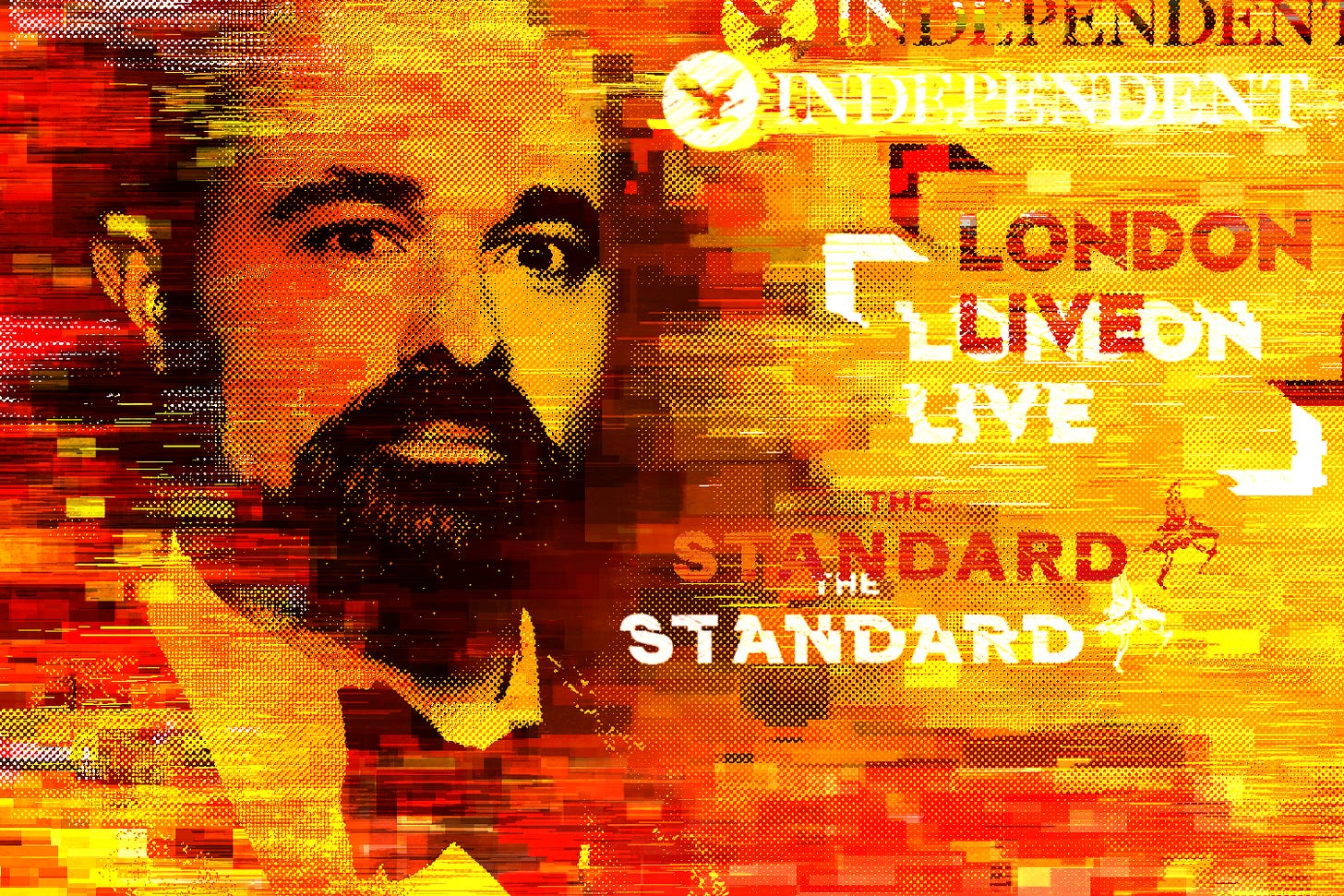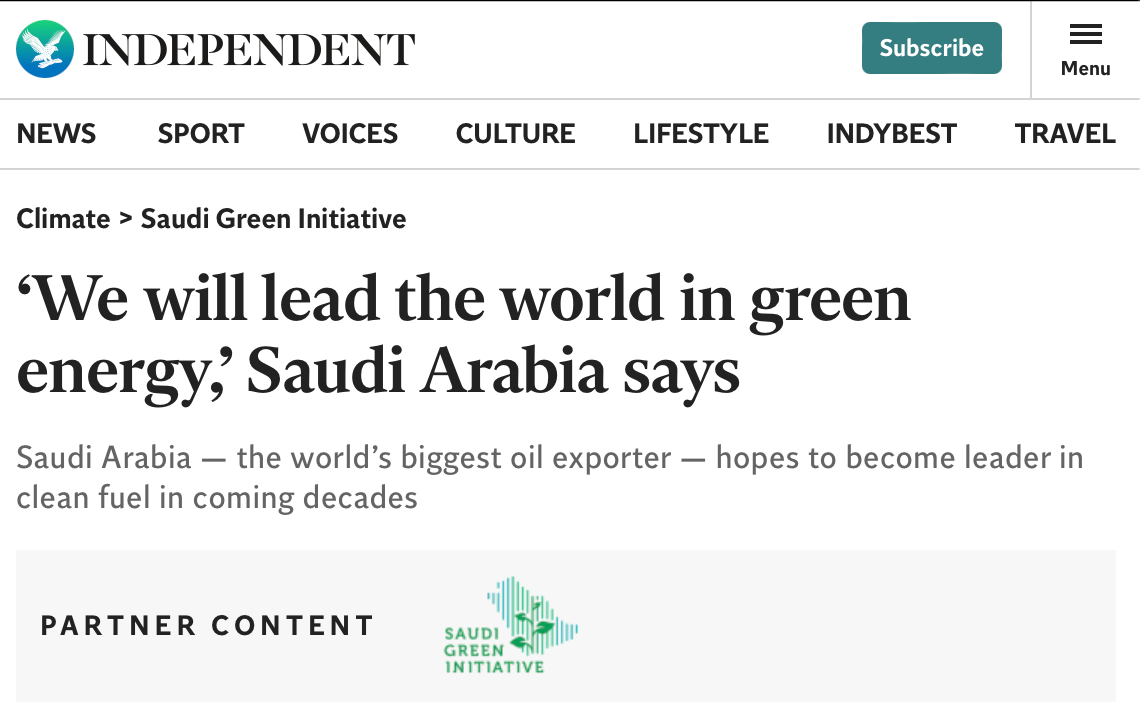Is this the beginning of the end for Lord Lebedev's London media empire?
Ten years ago he launched London Live, giving him control of a multi-format London media empire. This weekend the TV channel is shutting down as his Saudi Arabian backers tighten the purse strings.
London Live, the local television channel owned by Lord Lebedev, will shut down on Sunday night after a decade on air, with all 25 employees expected to lose their jobs. Staff at the outlet told London Centric they are now locked in a battle for a fair payout with with the multimillionaire member of the House of Lords, with one of the channel’s employees describing the HR negotiations as “parody levels of amateurish”.
Lebedev’s representatives have offered London Live employees the bare legal minimum statutory redundancy terms, adopting the same approach he took while closing down the daily print edition of the Evening Standard last year, a process which saw around 150 Londoners lose their jobs. In September, the media baron told London Centric that staff should be grateful that he kept them employed at a loss-making media business for as long as he did, arguing “those jobs wouldn’t exist if I wasn’t there”.
When it launched in 2014 London Live was supposed to be the crowning achievement of Lebedev’s conquest of the capital’s media scene. It gave the Russian-born British citizen control of a national broadsheet newspaper (the Independent), the capital’s dominant newspaper which helped make Boris Johnson mayor (the Evening Standard), and finally a television channel broadcasting in the prominent Channel 8 slot on Freeview. The idea was that, from dawn-to-dusk, Londoners would be able to consume an all-singing-all-dancing diet of Lebedev-owned media.
"I thought if London doesn't have its own TV channel, it's wrong,” Lebedev told Andrew Marr the day before London Live launched, promising extensive news provision and live simulcasts of theatre performances. "It's going to be the same quality as all the national channels.”
Instead, a decade later, London Live will shut down amid low ratings and having lost tens of millions of pounds. The broadcast licence is to be transferred to a rival business run by local newspaper boss David Montgomery which will simulcast the True Crime channel, along with a token amount of London news. The Standard has lost £100m in the last seven years, sacked the majority of its staff, seen its web traffic plummet, and then lost the executives who oversaw its autumn relaunch as a weekly newspaper. The one bright spot among Lebedev’s titles is the online-only Independent, which has built a large global audience and profitable model with a sharp understanding of Google rankings and social media traffic — although industry speculation is once again spreading that it could soon see a change of ownership.
This declining empire partly reflects rapid changes in media consumption habits but also the reality of how Lebedev, long London’s preeminent media baron, is increasingly losing interest — and influence — over the capital’s media scene. All of which begs the question: Is London’s media landscape seeing the beginning of the end of the Lebedev era? And if so, what prompted the change?
“Move the dildos”
To understand who calls the shots in a media business you need to know who pays the bills.
In the case of Lebedev’s London-based media empire a large amount of the money comes from investors and advertisers with close links to the Saudi Arabian state, who want to promote the interest of the Gulf kingdom overseas.
London Centric has previously explained how a state-controlled Saudi bank bought stakes in the Standard, the Independent, and London Live and obscured its ownership using off-shore bank accounts. According to one individual with direct knowledge of the business, Lebedev has a reputation for constantly complaining that he’s “down to his last few million” and was forced to pull the plug on the daily print edition of the Evening Standard after having to “beg the Saudis to pay the wages every month”. In October the Standard appointed a new board member who specialises in working on “strategic international media partnerships” for the Saudi state.
Now, leaked financial documents seen by London Centric reveal the extent of how Lebedev’s media empire has relied on Saudi cash to prop it up during lean periods.
According to the records, at the peak of the pandemic in 2021 the Independent was on track to receive more than £11m a year in advertising money from a handful of clients with close links to the Saudi state. This included a vast sponsorship contract to promote the Saudi Green Initiative (in which the oil-rich nation attempted to promote itself as on the frontline of environmentalism), a deal to promote tourism to the al-Ula historical site, as well as a contract with oil producer Saudi Aramco.
These contracts, equivalent to around a quarter of the company’s entire annual revenue at the time, were described as “enough to keep the business afloat” by one person with direct knowledge of the deal. Another individual suggested the Saudis paid above the market rate for the advertising, likening them to the deals agreed by foreign-owned football clubs such as Manchester City, where a business related to the owner ends up indirectly puts more money in through sponsorship deals.
There were concerns among some staff that the Independent’s readership, who considered the news outlet to have a liberal stance, would not welcome knowledge of the scale of the funding from an autocratic state, which is now on a modernisation drive but did not allow women to drive until 2018. As a result the full details of the Saudi contracts were treated with deep secrecy with only a few employees aware of the extent of what was going on. Updates on its progress were led by current Independent chief executive Christian Broughton, often in late night calls to Riyadh.
According to one employee, at one point a panic set in when it was noticed that a promotional article for a new Saudi energy project was sitting on the Independent homepage next to a clickbait list entitled “top ten sex toys”. With executives worried that Saudis would notice the inappropriate product placement, orders were sent out to urgently “move the dildos” before the money men in Riyadh made the connection.
Keep reading with a free trial or join now for 25% off.
Keep reading with a 7-day free trial
Subscribe to London Centric to keep reading this post and get 7 days of free access to the full post archives.




